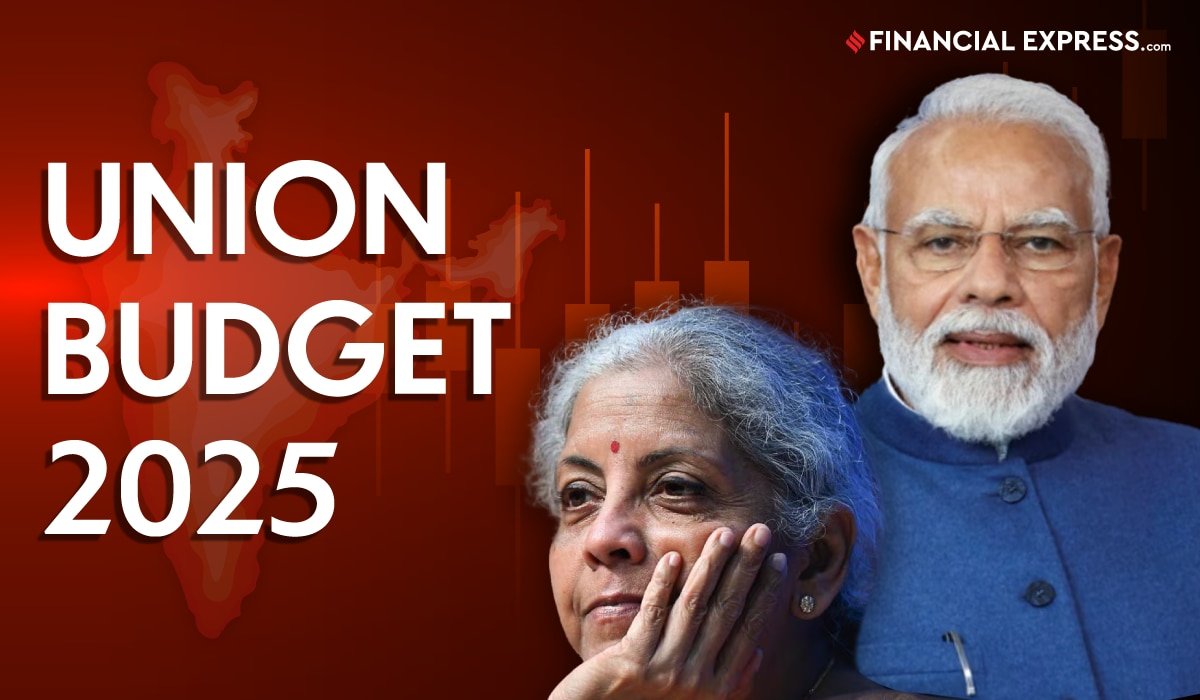Finance Minister Nirmala Sitharaman fully exempts Basic Customs Duty (BCD) on essential materials like cobalt, lithium-ion battery scrap, lead, zinc, and 12 other critical minerals.
In the first full Budget under the Modi Government 3.0, Finance Minister Nirmala Sitharaman proposed the removal of Basic Customs Duty (BCD) on key minerals essential for manufacturing electric vehicle batteries. This move is a significant step towards making electric vehicles more affordable and aligns with the government’s goal of achieving 30 per cent of automobile sales as EVs by 2030, accelerating progress towards a more sustainable future.
Why will EVs be cheaper?
To bolster domestic manufacturing, the Finance Minister has introduced tax incentives, including full exemption from Basic Customs Duty (BCD) on key materials like cobalt powder, lithium-ion battery waste and scrap, lead, zinc, and twelve other critical minerals.
Furthermore, reducing import duties on essential battery production equipment aims to lower EV battery costs, ultimately making electric vehicles more affordable. This decrease in operational expenses will stimulate the expansion of India’s EV battery industry and enhance domestic production capabilities.

This strategic move towards self-reliance not only reduces dependence on foreign supply chains but also promotes the adoption of cleaner transportation. By nurturing a thriving local battery ecosystem, the initiative advances India’s renewable energy goals, reinforces its climate commitments, and strengthens energy security through homegrown innovation.
Budget 2025: Auto Inc. reacts
Saket Mehra, Partner and Auto & EV Industry Leader, Grant Thornton Bharat, said, “The Budget’s customs duty cuts on lithium-ion batteries, alongside the National Critical Mineral Mission, mark a key step in strengthening India’s EV ecosystem. Lower import costs will make EVs more affordable, while investments in domestic mineral exploration, battery manufacturing, and electrolyte production will drive long-term self-reliance. These initiatives will reduce supply chain vulnerabilities and accelerate India’s shift to clean mobility. By fostering innovation, local manufacturing, and resource security, India is positioning itself as a global hub for sustainable transport, ensuring a competitive, resilient EV industry aligned with its Net Zero goals.”
Girish Wagh, Executive Director, Tata Motors commented on Budget 2025 saying, “The Union Budget 2025 lays out a clear roadmap for long-term transformation, driving India closer to its vision of a ‘Viksit Bharat’ with progressive policies and reforms that foster modernization, economic growth, and inclusive development. The continued allocation of over Rs. 11 lakh crore in capital expenditure, alongside targeted initiatives to boost consumption, support ‘Make in India’, and promote agricultural growth, is set to create a more dynamic economic environment. The removal of basic customs duties on key materials for battery manufacturing is a strategic move to boost domestic EV production, foster a sustainable ecosystem, and drive India’s transition to a greener economy. As infrastructure projects gain momentum and consumption picks up, improved roads, connectivity, and logistics will undoubtedly drive increased demand for freight and commercial transport solutions driven by both domestic demand and broader economic recovery.”
Speaking on the Budget, Shradha Suri Marwah, President, ACMA, said, “The Union Budget 2025-26 is forward-looking and growth-centric, reinforcing the government’s commitment to strengthening India’s manufacturing sector and driving the transition to cleaner mobility solutions. The focus on MSMEs, innovation, exports and supply chain resilience will provide a strong impetus to the auto component industry. Further, the proposals for personal Income Tax will put more money in the hands of people thus fuelling consumption leading to economic growth.”
Jyoti Malhotra, Managing Director, Volvo Car India said, “The Union Budget 2025-26 appears to be focused on stimulating consumer spending and fostering economic growth. Measures such as tax rationalization aim to increase disposable income and boost consumption. The government’s commitment to maintaining capital expenditure, without raising taxes, is a positive step.The emphasis on domestic value addition for EV batteries and the development of a comprehensive EV ecosystem, including battery recycling, customs duty exemption on 35 capital goods for EV battery manufacturing and charging infrastructure, are encouraging initiatives that should drive EV adoption across various segments. By focusing on demand-side incentives, without placing an undue burden on taxpayers, the budget seeks to create a favorable environment for EV growth. Overall, the budget seems to be forward-looking and focused on sustainable economic development.”
Speaking on the budget announcements, Shailesh Chandra, President, SIAM said, “We welcome this budget which is focused on long term sustained economic growth. The specific focus on rural prosperity and agriculture, coupled with reforms in the Personal Income Tax, is likely to have a positive effect on the Auto Industry, and will help in creating demand.As the Auto Industry transits into cleaner powertrains, in line with the Hon’ble PM’s vision on sustainable mobility, it will specifically benefit from the National Manufacturing Mission, which supports clean tech manufacturing for batteries, motors and controllers. Furthermore, the exemption of critical minerals (e.g. Cobalt, Lead, Zinc etc.), scraps of Lithium-ion battery, and 35 additional capital goods from customs duty, will help create a strong EV ecosystem in the country.
The Export Promotion Mission and support for integration with global supply chains are critical initiatives that will enable Indian manufacturers to expand export footprints, and align with global supply chains.The Auto Industry is also thankful to the Government for creating a high-level committee for regulatory reforms, aimed at reviewing regulations, certifications, licenses, and permissions, as this will certainly help in ease of doing business in our sector.”
Anish Shah, Group CEO & MD, Mahindra Group said, “We commend the 2025 Union Budget for its continued support of robust consumption growth through changes in the tax structure, effectively placing more disposable income in the hands of the Indian consumer. This will encourage private sector capex to move in a positive direction.The theme of “Make in India for the world” remains a key focus in this budget, with efforts to reduce India’s manufacturing costs poised to significantly enhance the country’s global competitiveness. In addition to providing an immediate stimulus for demand and growth, the budget emphasizes long-term growth through substantial infrastructure investments and a strong focus on innovation.”
Commenting on the same, Abhijeet Sinha, Project Director-National Highways for Electric Vehicles (NHEV) for the Automobiles & EV Sector, said, “Budget 2025-26 introduced tax incentives, including full exemption from Basic Customs Duty (BCD) on key materials like cobalt powder, lithium-ion battery waste and scrap, lead, zinc, and twelve other critical minerals. This decrease in operational expenses will stimulate the expansion of India’s EV battery industry and enhance domestic production capabilities. It’s expected to result in cheaper EV batteries, making electric vehicles more affordable.”
Sulajja Firodia Motwani, Founder and CEO of Kinetic Green, said, “We welcome this progressive budget, which paves way for robust economic growth through its strong emphasis on agricultural reforms, support to MSMEs, and capital expenditure. The increase in the income tax exemption limit is a significant step that will enhance consumption and drive demand.
In particular, the focus on the EV sector is commendable and most welcome. The exemption of Basic Customs Duty (BCD) on critical minerals like cobalt, lead, and lithium scrap will streamline the EV battery and cell supply chain, reducing costs and boosting efficiency. Additionally, the exemption on BCD for capital goods used in lithium-ion battery manufacturing is a welcome move to strengthen domestic battery production.Further, the promotion of ‘Make in India’ for key EV components such as controllers and motors, alongside incentives for solar PV cell manufacturing, will accelerate India’s transition towards clean mobility and sustainable energy solutions.”
Venkatram Mamillapalle, Country CEO and MD, Renault India said, “We welcome the transformative vision of Finance Minister Nirmala Sitharaman in the Union Budget 2025. The budget’s focus on agriculture, MSME development, investment, and exports sets a promising path for India’s growth. We commend the Dhan-Dhaanya Krishi Yojana, benefiting 1.7 crore farmers, and the revised tax structure exempting income up to ₹12 lakh, which will boost consumer spending. This is expected to positively impact vehicle purchases, especially among the growing middle class.”
Narayan Subramaniam, CEO & Head of Design, Ultraviolette Automotive Pvt. Ltd. : “We are enthused to see the Union Budget 2025-26 prioritizing clean technology and domestic manufacturing, especially in the electric vehicle sector. Increased infrastructure investment and incentives for electric mobility will strengthen our efforts to develop eco-friendly mobility solutions. The inclusion of 35 capital goods for EV battery manufacturing in the exemption list is a transformative move, significantly reducing production costs and fostering innovation in lithium-ion battery production.
Furthermore, the full exemption on critical minerals like cobalt powder and lithium-ion battery scrap ensures a steady supply of essential resources, thereby boosting local production and job creation in the clean tech sector. As an electric vehicle manufacturer, we are particularly encouraged by the budget’s focus on enhancing the domestic production of key components such as batteries, motors, and controllers. This initiative will not only strengthen India’s EV ecosystem but also enable us to build a more resilient local supply chain. This budget not only empowers the aspiring MSMEs financially but also encourages the adoption of cleaner alternatives, paving the way for a greener future.”
Discover the latest in the auto world with new cars and new bikes … Read More , explore upcoming cars in India, and find your perfect match with cars under 5 lakh, 10 lakh or 15 lakh. Stay updated with the latest auto news and the rise of electric vehicles.








